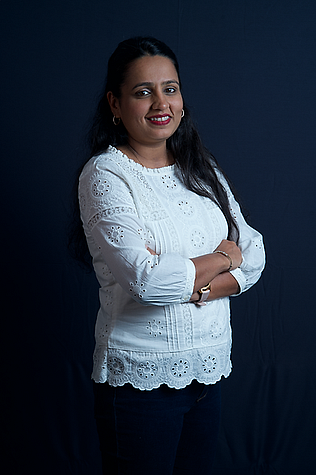(The Free Press Journal publishes articles by study abroad consultants, Consulates, foreign universities, international students, and much more every Saturday to give its readers a glimpse of the world of overseas education.)
Applying for an MBA is a significant step in your personal, academic, and professional life, and the application process can be intensive and demand substantial time, energy, and effort. Since each of the multiple components of an MBA application is equally important in its own right, the quality of each element truly matters.
In this article, we will explore some key components of an MBA application process, if you are planning to study abroad:
● Building your profile: The MBA admissions committees look for well-rounded candidates with good academic skills, professional achievements, and strong community engagement. If you are looking to apply to a B-School, it is time to start thinking about whether you need to improve in certain areas and what would be the best way to showcase your strengths.
● Researching and shortlisting schools: Campus visits and virtual information or networking sessions are good ways to understand whether a particular school is right for you and worth your investment. However, it is important to compare various MBA programmes where your profile is competitive and focus on schools that best align with your career goals.
● Preparing for and taking GRE or GMAT: Most schools accept both GRE and GMAT, which are highly competitive exams. You should aim to spend at least 100 hours preparing for whichever entrance exam you intend to take, including several practice tests. Also, consider private or group tutoring to help you better manage test anxiety with guidance and support.

Neha Iyengar |
● Preparing for and giving any other entrance exam for international students: Most international students who have completed their undergraduate studies in a non-English speaking country must take an English language proficiency test such as the IELTS, TOEFL or PTE. Even if you are comfortable with written and spoken English, you must devote between 15 and 20 hours of study to familiarise yourself with the format of these tests and score above the expected level of proficiency by the B-schools.
● Requesting for and sending transcripts: All B-schools require you to submit original transcripts of all programmes you have completed before your MBA application. Remember that requesting institutions to send your transcripts to target schools can sometimes be time-consuming, depending on the time of the year and the institution. Make sure you have sufficient time for this process to go smoothly and efficiently. International students may also have to submit their transcripts for evaluation before sending them to the target B-schools, if required. This process could also take up a fair amount of time, so it is always best to start early.
● Choosing and connecting with recommenders: Being thoughtful about who you request to write a letter of recommendation is important, and someone who knows you quite well and can write a strong letter on your behalf is essential. Give your recommenders a notice well in advance so that they have sufficient time to craft and submit an excellent letter to each of your target schools for you.
● Writing and finalising essays: MBA essay drafts take time and reflection; this is the application portion where you can truly showcase your professional and personal journey and intentions. Make sure that you give yourself enough time to revisit the essays multiple times, tweaking and writing as many drafts as required before you are satisfied with the outcome. It is recommended that you have an expert, family member or friend read your essays and share feedback, so that you submit the best version of yourself to the admission committees.
● Drafting and finalising resume: Similar to the essays, your resume should highlight professional growth and accomplishments essential for business executives, including leadership and teamwork. You might have to revise your resume over and over until you have a strong, clean, and crisp draft to share with prospective B-schools, so give yourself enough time to do justice to this process.
● Applying for external scholarships, if any: Similar to the B-school application process, a scholarship application may require you to submit several documents. Since this is also a highly competitive and time-sensitive process, it is advisable to start this process early and ensure that you submit your best application to secure funding.
● Preparing for admissions interviews: Interviews are a critical component of the process, as it allows schools to assess the candidates face-to-face, even if the interviews are conducted virtually. Only those candidates that have been shortlisted after clearing the written application are invited for interviews. A few rounds of mock interviews can help you feel confident and prepared for the final interviews.
To conclude, the MBA process requires careful and thorough consideration as well as significant dedication of time. Always, remember an MBA is a transformative experience of attending business school and cultivating lifelong friendships.
The author is the MBA head at Oncourse Global Vantage.












